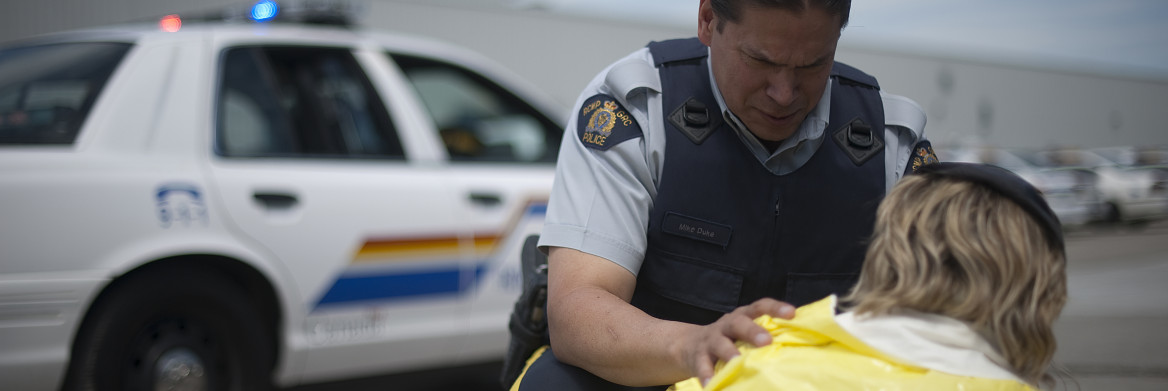Community outreach is a term that's used often but can mean different things depending on who you ask. For police officers, it can mean simply being part of a community by becoming more involved with the people who live there. It can mean building or repairing relationships that need attention. It almost always involves consulting with partners and the public through communication to solve a problem.
For this issue, we focus on outreach for some of our most vulnerable communities and individuals — people who may not have the tools, skills or ability to ask for help themselves.
In our cover story, Paul Northcott looks at the challenge of responding to people in distress. He looks at various examples where RCMP officers have teamed up with community partners to support those experiencing a mental-health crisis. These partnerships provide high-risk, high-volume clients with support more quickly and can free up police resources.
For the homeless, accessing services can be a challenge. Patricia Vasylchuk describes how police on bikes or on foot are meeting residents who otherwise may not think to seek help. Positive interactions with people who are transient, or simply going about their day, is allowing easy conversations and fostering trust with police.
In Surrey, B.C., a recent influx of young refugees has posed some challenges for school administrators and police. The disruption of moving to a new country and learning a new language can be especially difficult for teens and can lead to acting out. Vasylchuk writes about how the RCMP Surrey Youth Unit is connecting with young people through positive role modelling and sports to make the transition less frustrating.
In Newfoundland and Labrador, RCMP officers are inviting Indigenous students to open the door to a career in policing. The summer program gives students the chance to deliver information sessions on topics like internet safety and drug awareness, and helps build community confidence in the police. Already, some students are coming back for a second year and want careers as police officers.
Cpl. Kim Mueller has been pouring her passion for kids into a number of youth outreach programs for First Nations and Métis communities in Enoch, Alta. Her latest program mentors and educates Indigenous girls in grades 6 and 7 to keep them away from sex, drugs and alcohol, keep them in school, but also have fun.
Domestic violence is a problem that affects every community. In Moose Lake, Man., Cst. Ryan Harnum, a former counsellor, reached out to a women's shelter and a certified Indigenous addictions specialist to organize a domestic violence workshop. It provided invaluable advice to participants who shared their personal struggles with violence and addictions.
We also feature how police in one B.C. community responded to hate crimes with a diversity forum. We look at police awareness training to better understand people on the autism spectrum. And our panel discussion asks police officers the best way to measure outreach to see if it's actually working.
What some may label as a touchy-feely subject, is anything but. As this issue shows, outreach is helping officers do their work and it's changing lives for the better.
